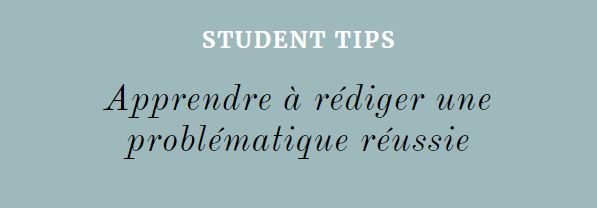Are MCF qualifications being eliminated? No, it’s not happening anytime soon. So, what are the evaluation criteria? Will my thesis receive the attention it deserves from the reviewers? Is the number of publications a determining factor? And what about my teaching experience? Every year, the qualification procedures for teacher-researchers bring about their share of uncertainties and anxieties. How is my application for the French qualification of associate professor evaluated? Discover all my advice to prepare your file and stand out!
👉 Cliquez ici pour lire la version française de cet article.
What is the CNU : « Conseil National des Universités »?
Through qualifications, the CNU oversees the preselection of future teacher-researchers in France. Every year, a committee composed of associate professors and professors, all members of the CNU, evaluates several thousand files. To ensure the impartiality of the evaluation, two evaluators, responsible for providing an objective opinion on each file, are designated per candidate. Their comments or reservations are then forwarded to the CNU selection committee, which determines the final opinion during deliberations.
The role of the CNU is to certify the « excellence » of the qualified file, or at least its conformity with their vision of the perfect academic. It thus carries out an initial validation of candidates eligible for the position of associate professor, ensuring their suitability with French academic criteria and the specific requirements of each field. Roughly speaking, this initial « screening » facilitates the task of the university committee in selecting their future colleague.
What are the evaluation criteria for my thesis?
Your thesis is the focal point of your dossier, the centerpiece of your work. I’m not certain that the reviewers will read your entire text, but they will without doubt examine your approach, the manuscript’s structure, and your conclusions. They will also be interested in your research problem, its resolution, and its gaps. And even if the final volume of your manuscript is not an indicator of quality, the end product must reflect a long, methodical investment
Is the volume of my thesis a criterion for evaluation?
A thesis completed in less than three years or with a volume below average can therefore work against you. It is the first and primary accomplishment of your dossier. The evaluation criteria will be rigorous, and initially, the reviewers will set aside the defense report to objectively judge your research work. At the end of the evaluation, if your thesis does not meet the CNU’s criteria, you will need to rely on the quality of your secondary achievements. Will that be enough?

How to avoid having a ‘dry’ thesis?
A ‘dry’ thesis is a dossier without any additional output. It’s not necessarily a disaster if your thesis is excellent, but it doesn’t work in your favor. The absence of secondary output complicates the work of the reviewers. Without other examples of your research work, they cannot validate its integration with the recent concerns of your specialty. It’s a real problem!
Are supplementary works mandatory to be qualified?
Your list of achievements serves as a reference point. It allows for the assessment of your scientific rigor, your contribution to advancing research, and, in other words, illustrates your level of involvement. Your legitimacy thus depends largely on your participation in nationally or internationally renowned conferences. It is a vital issue because it is one of the main tasks of the teacher-researcher: to promote the university and research.
How to optimize the visibility of your research work?
Presentations bring real added value to your portfolio. It is important to respond to calls for contributions in order to meet your peers and to be published in reference journals. Every two or three years, THE ‘place to be’ conference in your field inevitably takes place. You absolutely must participate as a speaker, or, failing that, as an attendee. It is necessary to present yourself, either alone or as part of collective projects; you have no choice.
How many publications should one have in addition to the thesis?
Unfortunately, there is no standard answer, as there is no defined minimum quantity or standard. However, the CNU considers having a publication in a recognized journal as an undeniable advantage.
A quality thesis, accompanied by one or more presentations at selective conferences, is generally better evaluated. A thesis considered average must be supplemented by significant work. However, can the number of shortcomings be compensated by the number of publications? In this case, you will need to rely on your teaching and mentoring experiences…
What are the criteria regarding teaching?
All candidates must have teaching experience in France or abroad, even in the form of temporary positions. The CNU criteria will then evaluate their variety and level.
Your experience should be significant and reach a certain number of hours. Therefore, dense and original pedagogical activity can counterbalance a research dossier of average quality. Teaching is thus one of the main evaluation criteria, alongside your research activities (thesis + publications) and administrative responsibilities.
Are administrative responsibilities important?
Rarely paid and time-consuming, administrative tasks nevertheless serve as an indicator of your level of involvement in the functioning of your university and/or research laboratory. Organizing study days, conferences, or symposiums, attending laboratory meetings (note-taking, report writing, organization), contributing to review activities, serving as administrative representatives for doctoral students, participating in selection committees…
All these tasks demonstrate your commitment to academic and scientific life. They are considered by the CNU as a sign of motivation and seriousness. They indicate the type of colleague you will be.
What should I do if my application is rejected?
A rejection is not final. However, the CNU recommends that the candidate not reapply the following year with the same dossier, as the reviewers assess the candidate’s developments since the last submission. It is important to understand the reasons for the failure and to work on the aspects to improve before submitting the application again.
If a candidate faces two successive rejections from a CNU section, they can appeal to the competent group within the CNU, but this time it involves an interview.

Conclusion
The evaluation criteria of the CNU reveal a nuanced dynamic. Research, teaching, and mentoring activities are undeniable pillars, but the existence of trade-offs between criteria adds flexibility to the process. Thus, shortcomings in one area can be balanced by strong commitments elsewhere. Avoiding any point system, the selection process favors a multi-criteria approach, resulting ultimately in a binary « yes » or « no » outcome. Discussions among members, however, underscore a collective evaluation, highlighting individual contributions to research advancement and recognizing quality over quantity in building an academic and professional profile.
✏️ Feel free to share your questions in the comments. I’ll be delighted to discover other avenues to enrich this exploration of qualifications.
👉 Stay connected to Place Plume’s news on Instagram and Facebook, and subscribe to the blog’s newsletter in the menu on the right side of your screen. You’ll receive all my writing tips and advice once a month directly in your inbox.
✨ And if you need help proofreading or preparing your application documents or thesis manuscript, feel free to contact me. I’m here to help you!








0 Comments